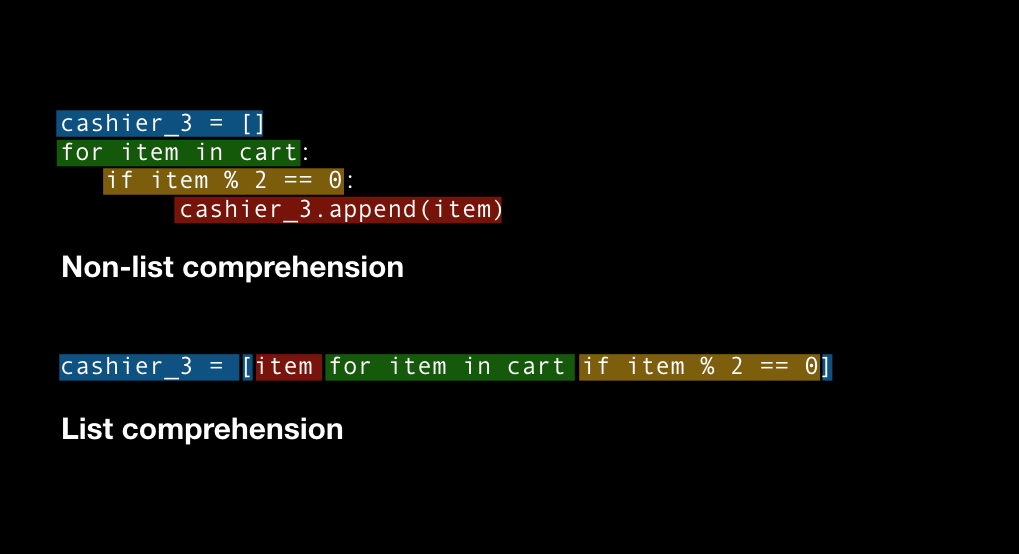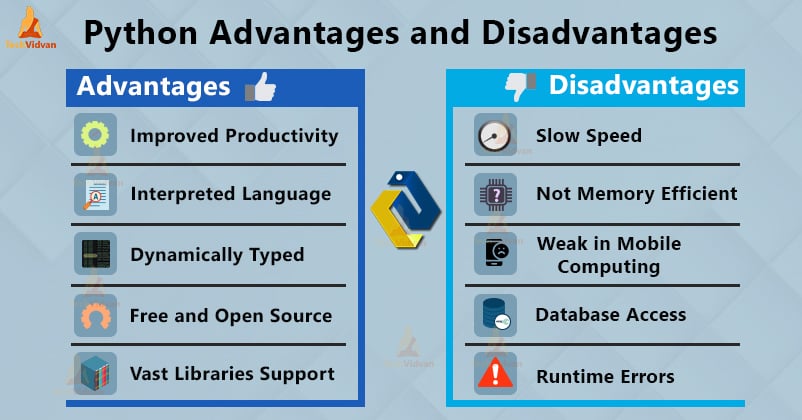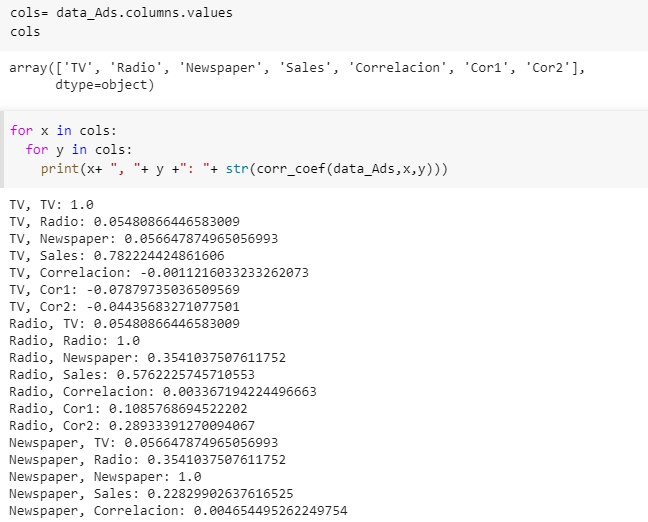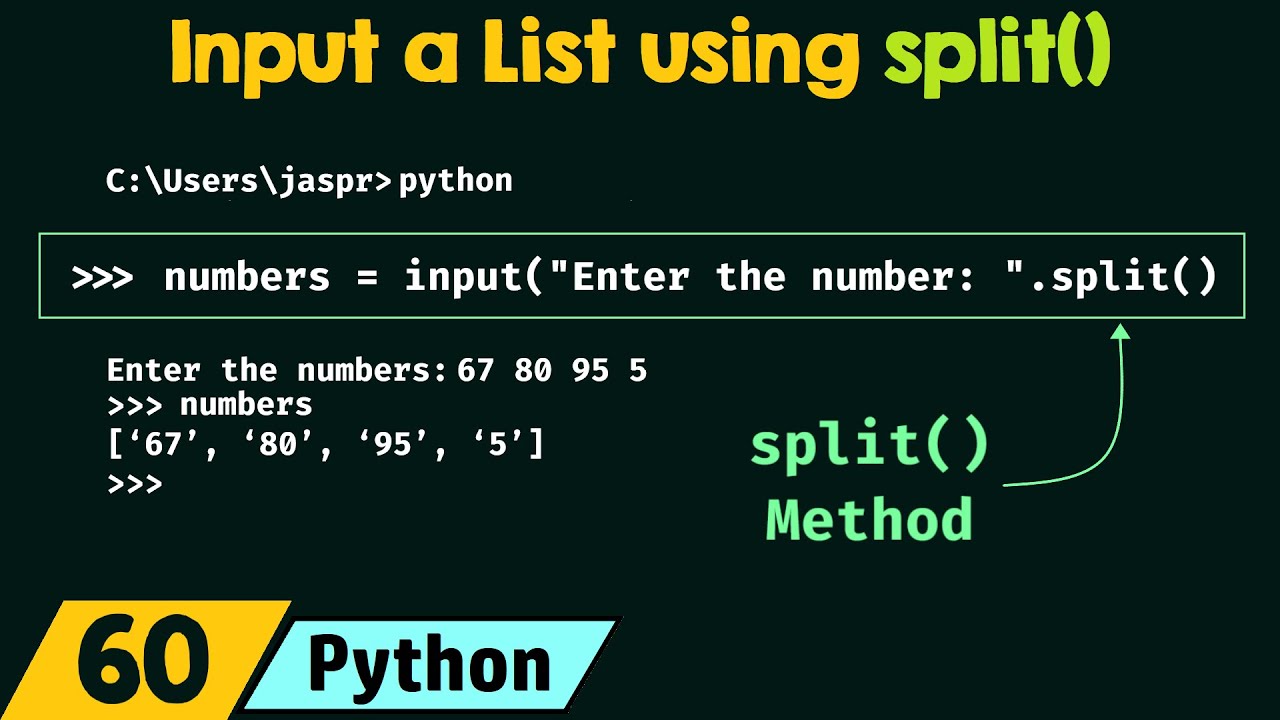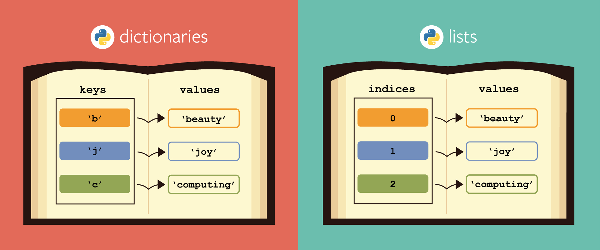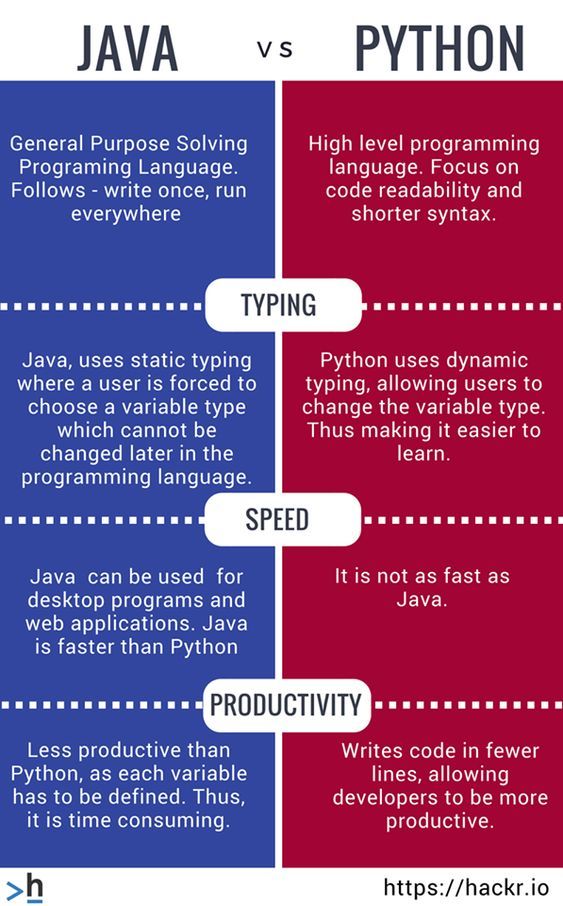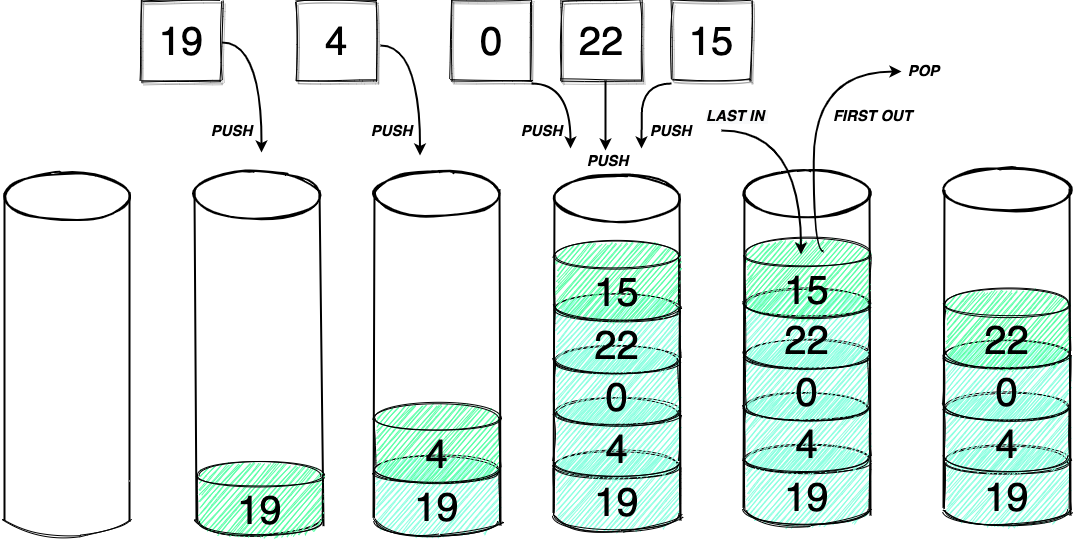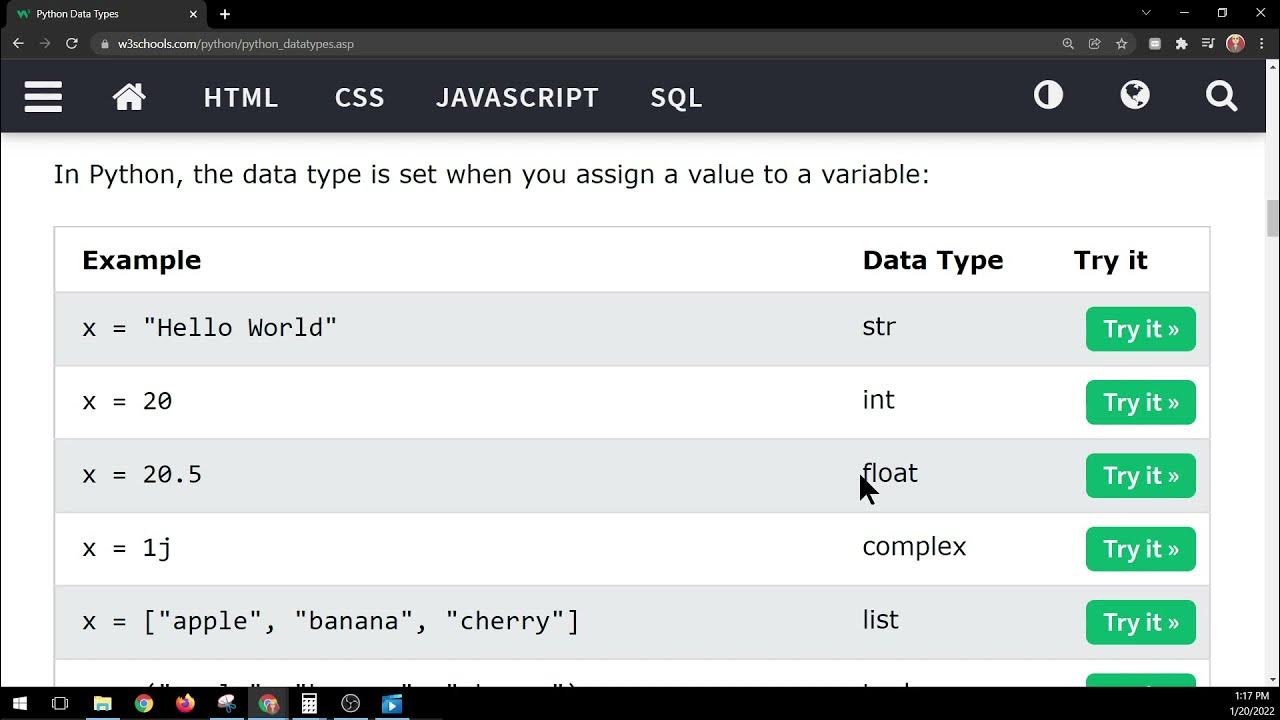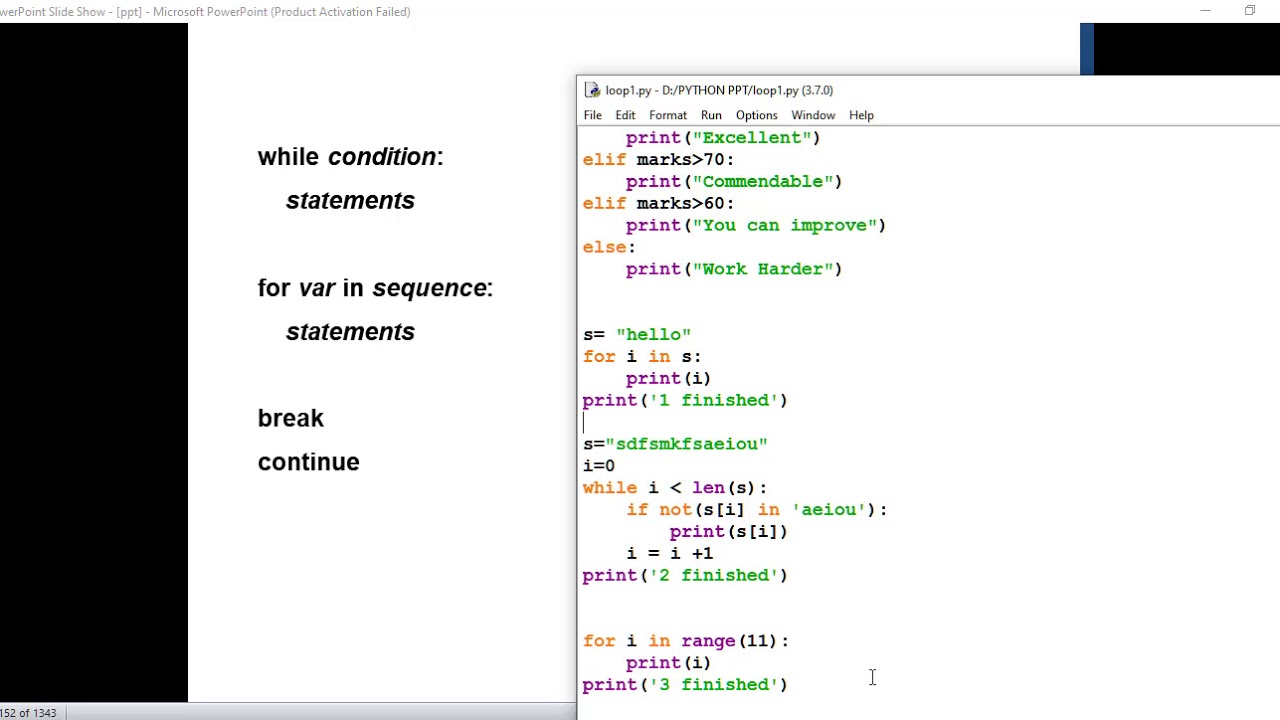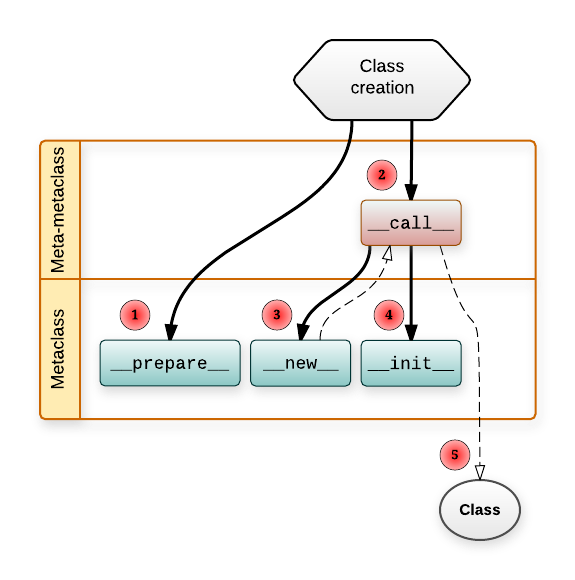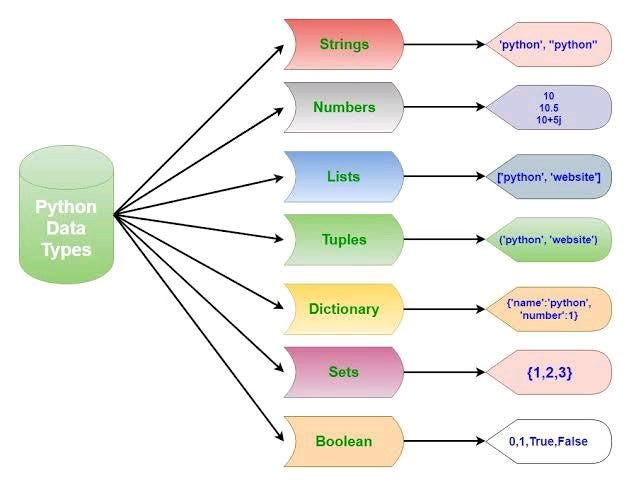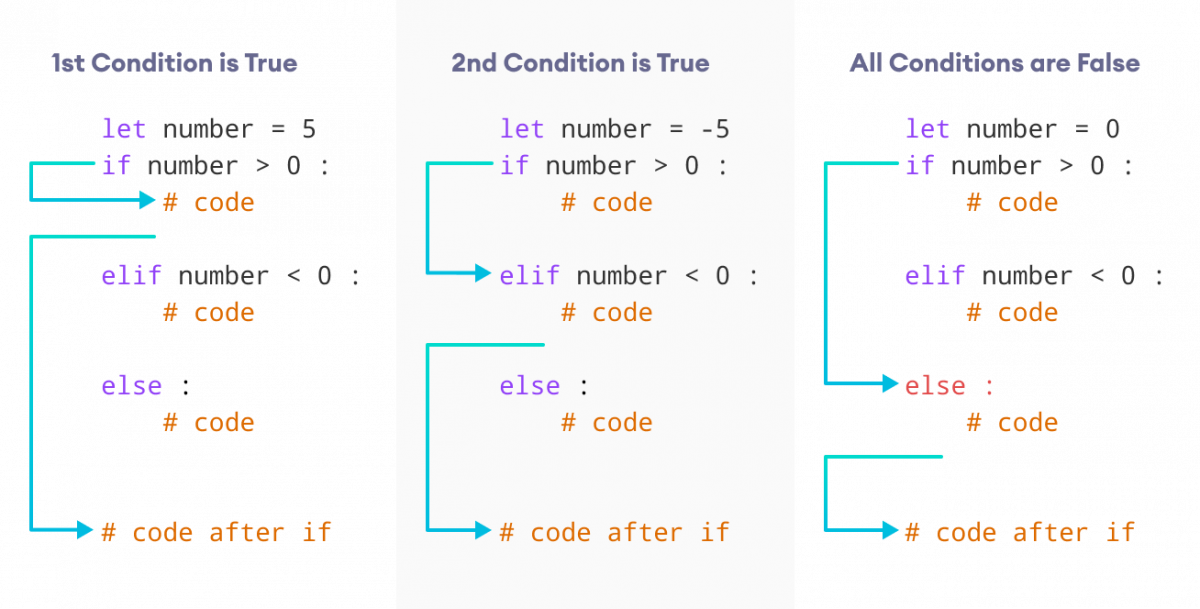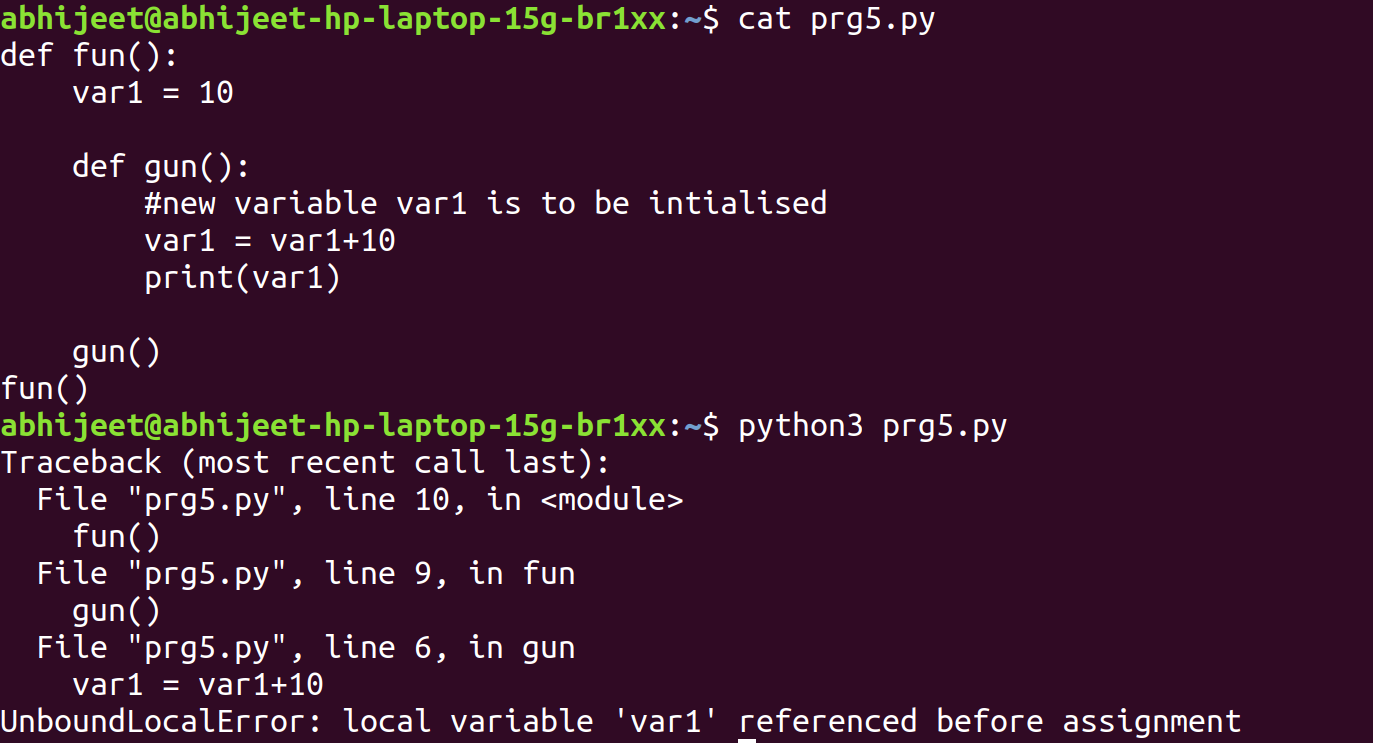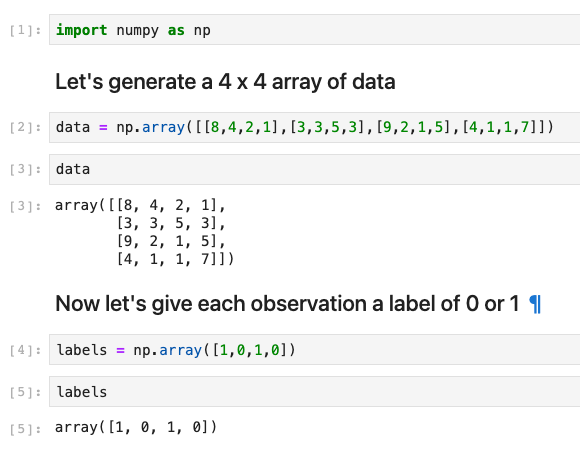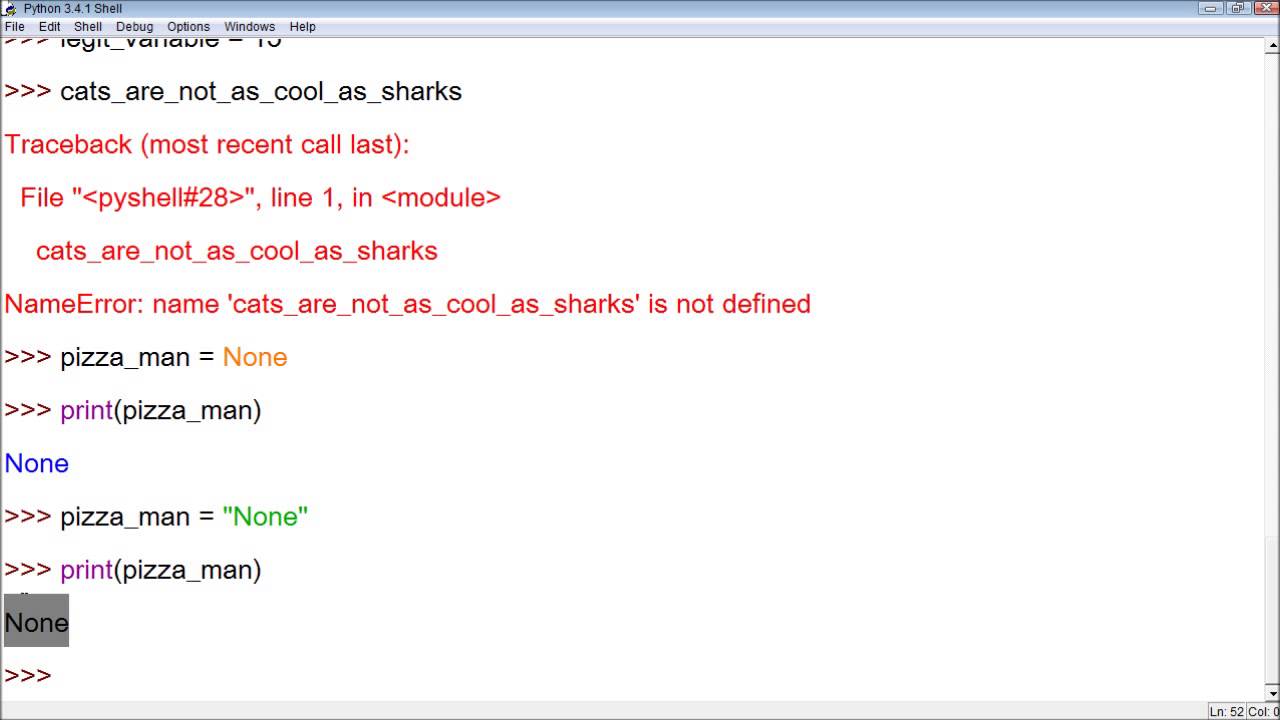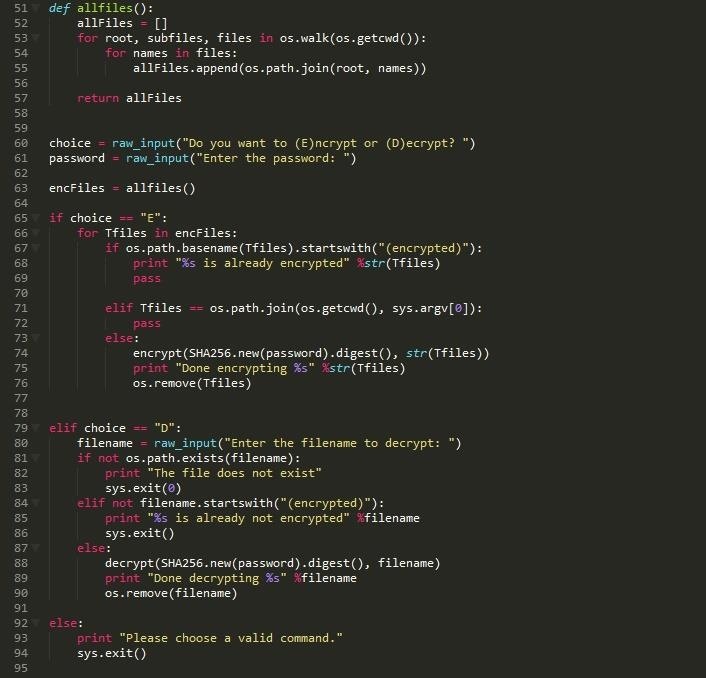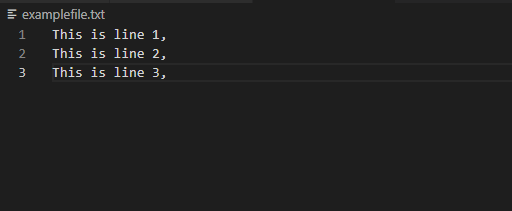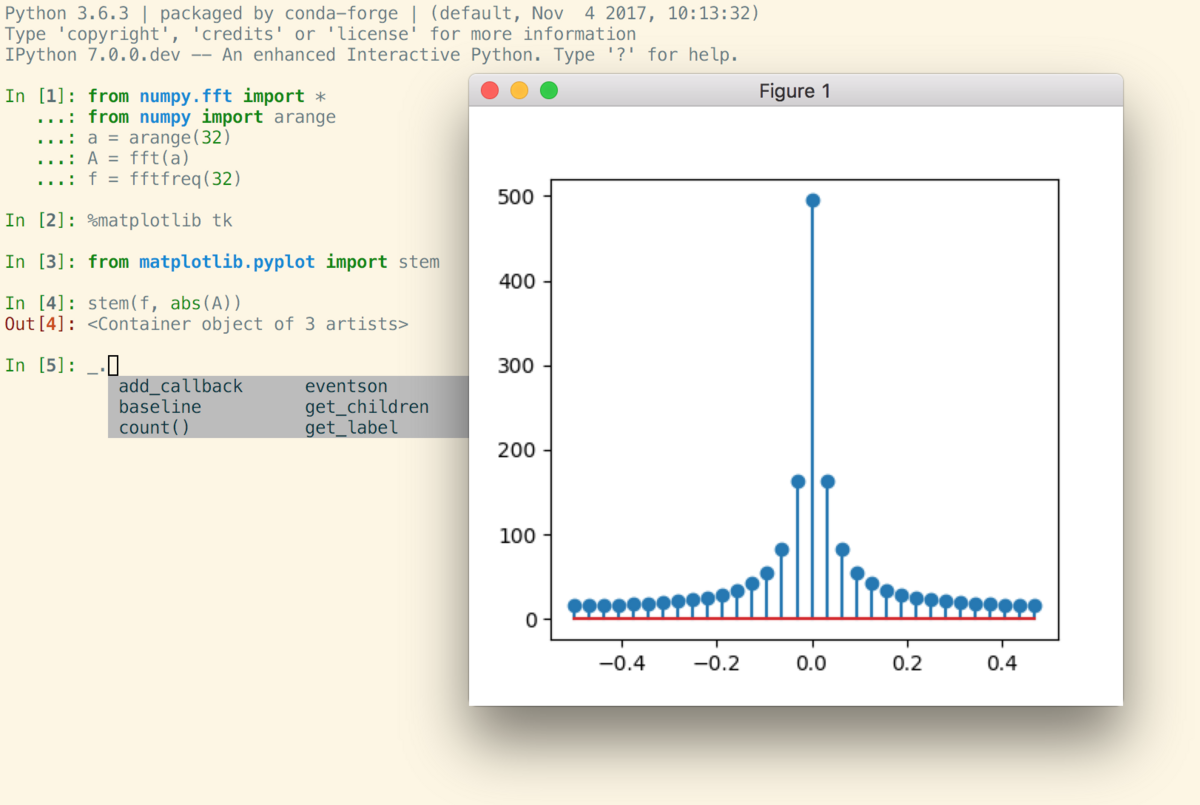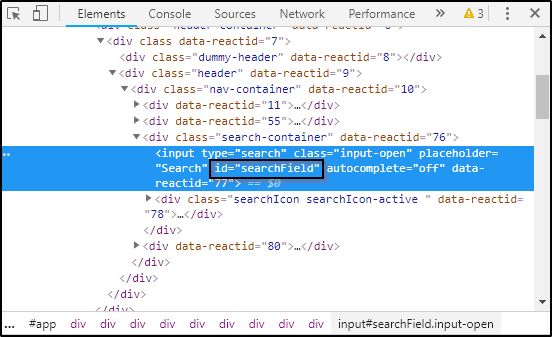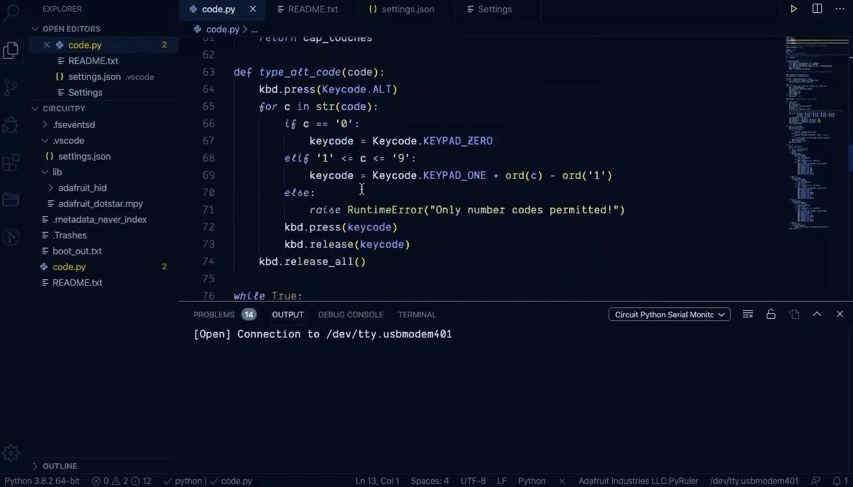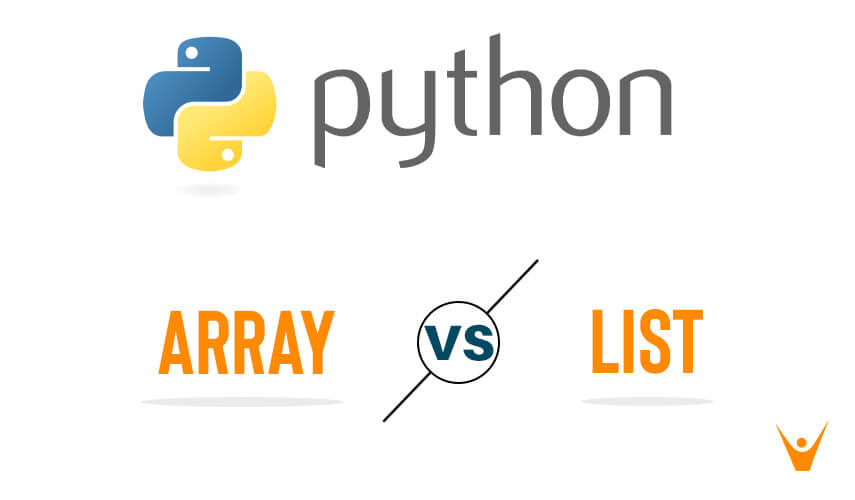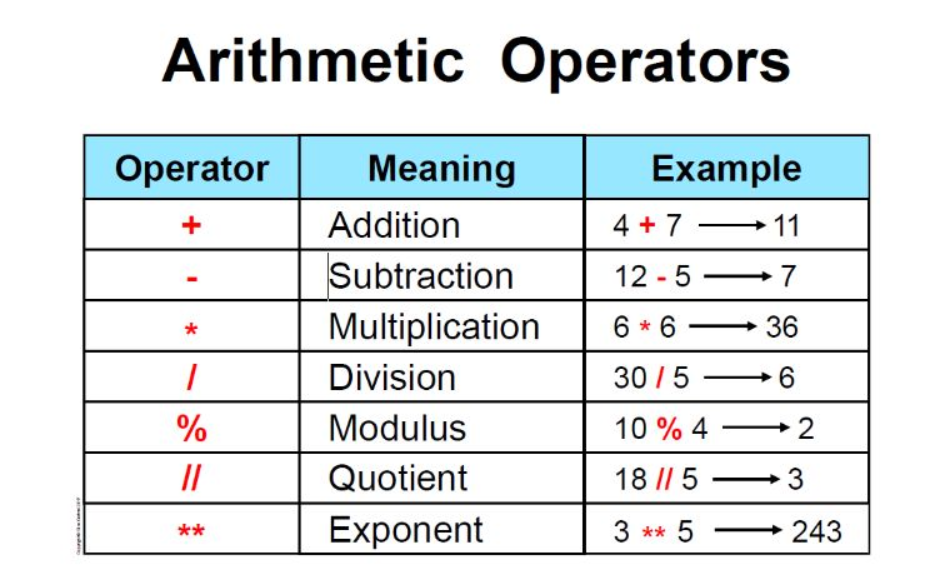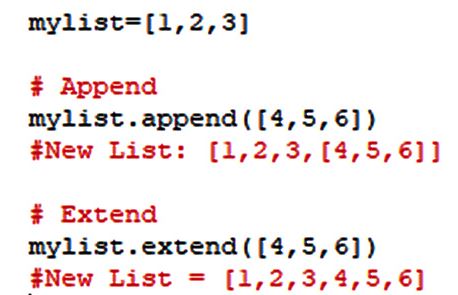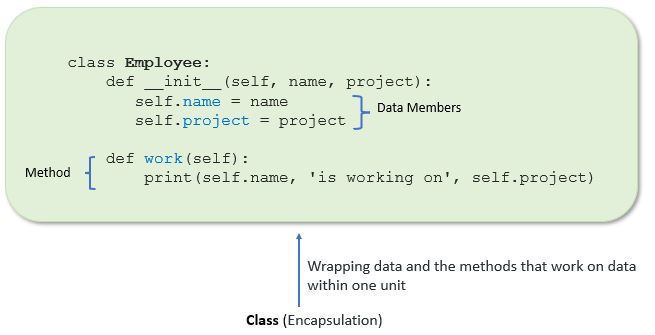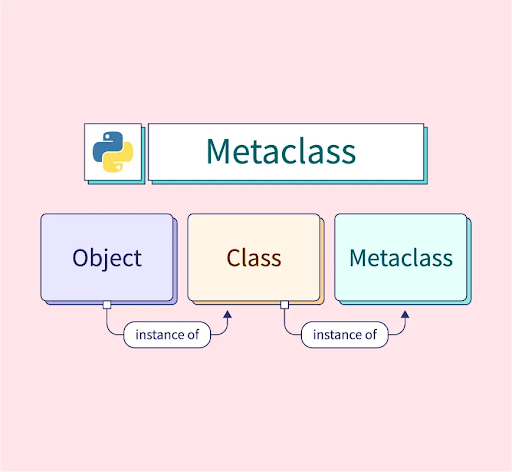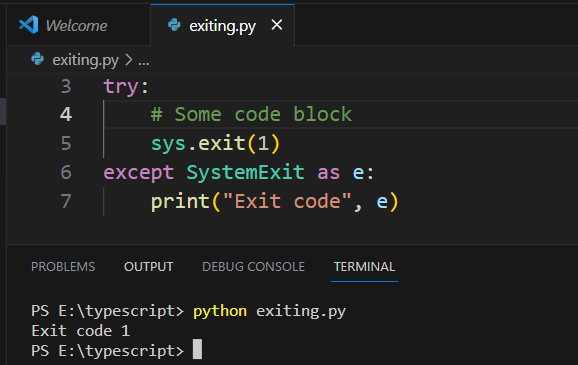What is mean using list comprehension in Python?
What is mean using list comprehension in Python?
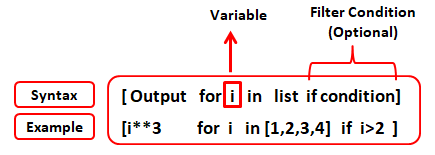
I'll respond in English as per your request.
What is List Comprehension in Python?
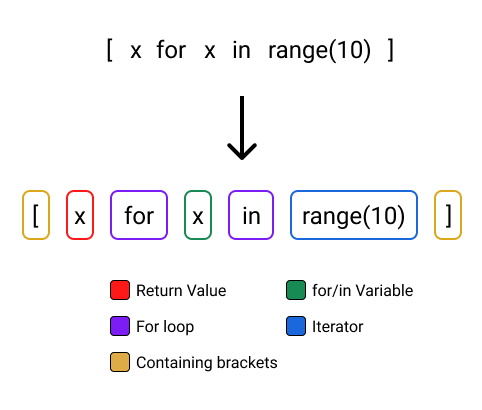
List comprehension is a powerful feature in Python that allows you to create new lists from existing ones by performing operations on each element of the original list. It's a concise and elegant way to manipulate data, making your code more readable, maintainable, and efficient.
In simple terms, list comprehension is a shorthand way to create a new list based on an existing list or other iterable (like strings, tuples, dictionaries, etc.). You can think of it as a condensed form of the for loop with conditional statements, which iterates over each element in the original list and applies specific operations to transform or filter the elements.
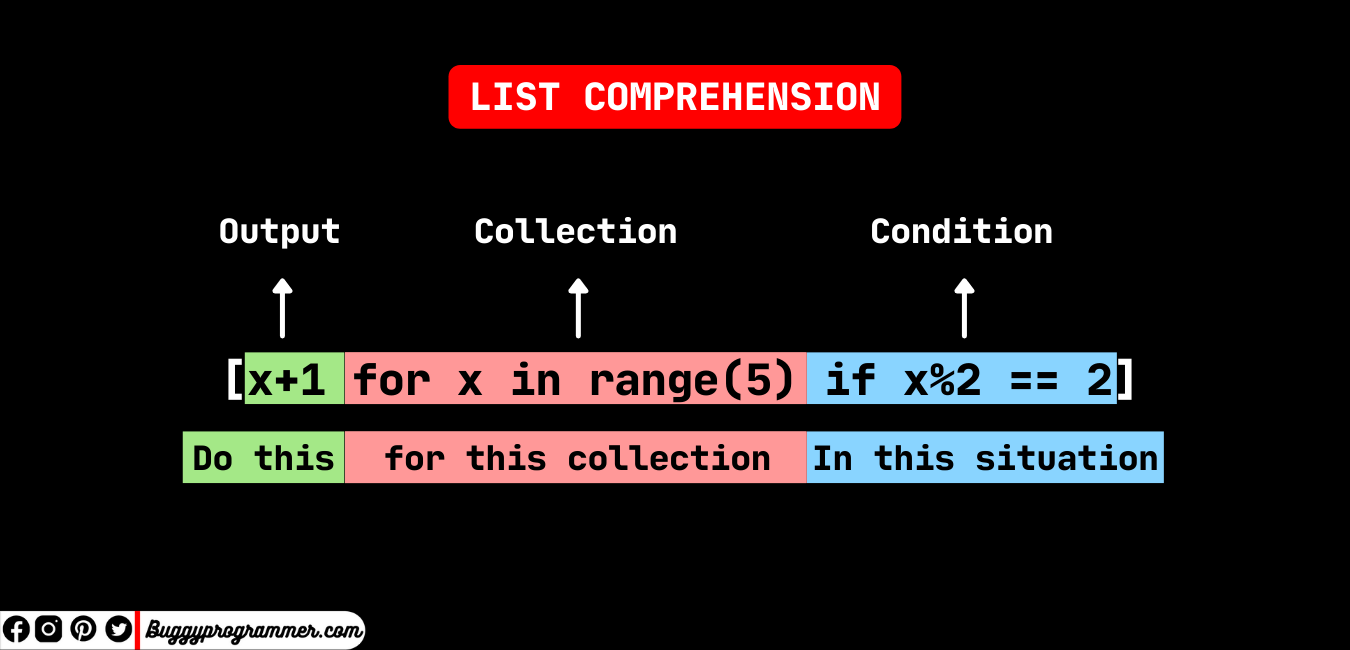
Basic Syntax
The basic syntax of a list comprehension is:
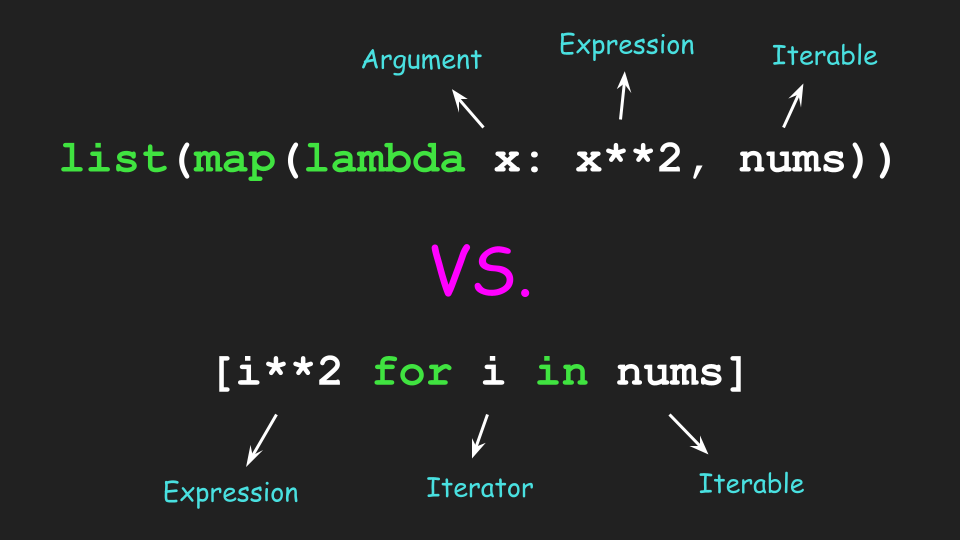
[ expression for variable in iterable ]
Here:
expression is the operation you want to perform on each element. variable is the temporary variable that takes on the value of each element in the iterable. iterable is the original list or other iterable from which you want to create a new list.
Example 1: Squaring Numbers
Suppose you have a list of numbers and you want to square each number. You can use list comprehension as follows:
numbers = [1, 2, 3, 4, 5]
squared_numbers = [x**2 for x in numbers]
print(squared_numbers) # Output: [1, 4, 9, 16, 25]
In this example, the list comprehension iterates over each number x in the original list numbers, squares it using the x**2 expression, and creates a new list squared_numbers with the results.
Example 2: Filtering Even Numbers
Now, let's say you want to create a new list containing only the even numbers from an existing list. You can use list comprehension as follows:
numbers = [1, 2, 3, 4, 5]
even_numbers = [x for x in numbers if x % 2 == 0]
print(even_numbers) # Output: [2, 4]
Here, the list comprehension iterates over each number x in the original list numbers, checks if it's even using the condition x % 2 == 0, and adds it to a new list even_numbers only if it's even.
Advantages
List comprehensions offer several benefits:
Concise Code: List comprehensions are often shorter than equivalent for loops, making your code more readable. Efficient Execution: Python can execute list comprehensions more efficiently than for loops, as they're optimized for performance. Improved Readability: List comprehensions clearly express the intent of the operation, making it easier to understand and maintain your code.Common Use Cases
List comprehensions are perfect for:
Transforming data: Convert strings to uppercase or lowercase, remove duplicates, etc. Filtering data: Create new lists with specific conditions, like filtering out even numbers. Combining multiple lists: Merge two or more lists into a single one.In summary, list comprehensions in Python are an excellent tool for working with lists and other iterables. They offer concise, readable, and efficient code that can be used in a wide range of scenarios, from data transformation to filtering and combining.
Can you put a function in list comprehension Python?
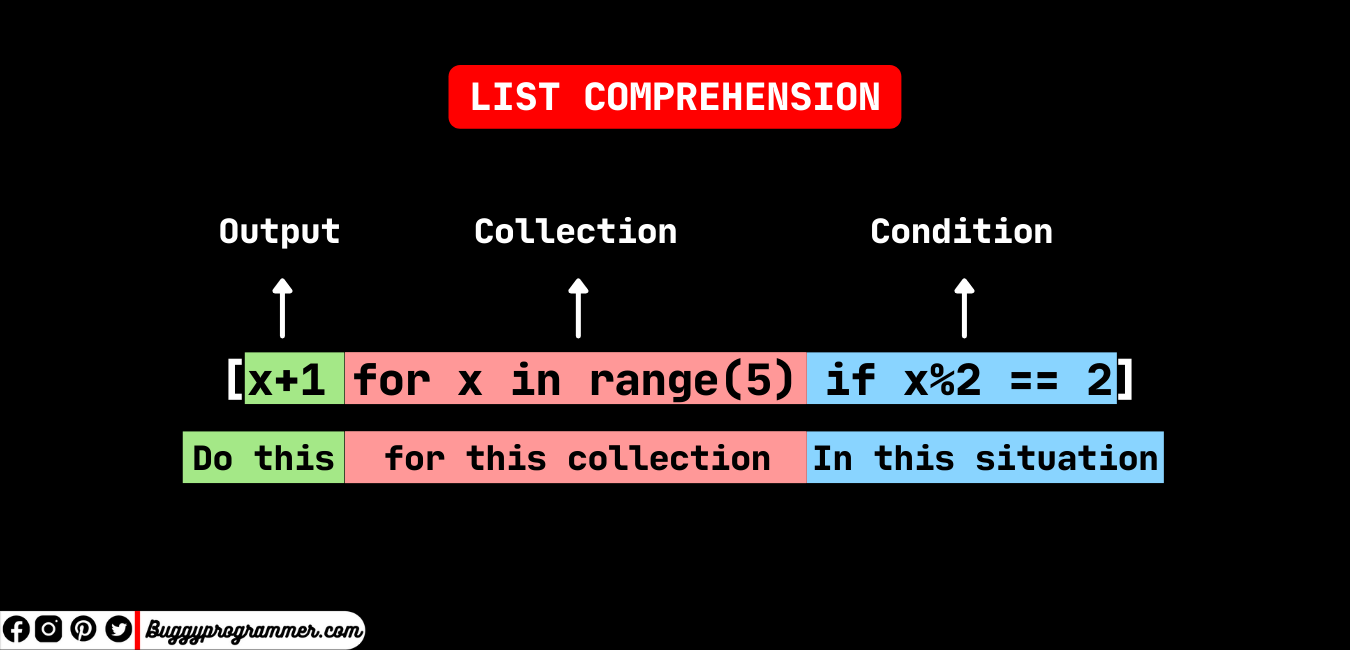
I'd be happy to help!
In Python, a list comprehension is a concise way to create a new list from an existing iterable (like a list, tuple, or string) by applying some transformation or filtering operation.
Here's the basic syntax:
new_list = [expression(item) for item in old_list]
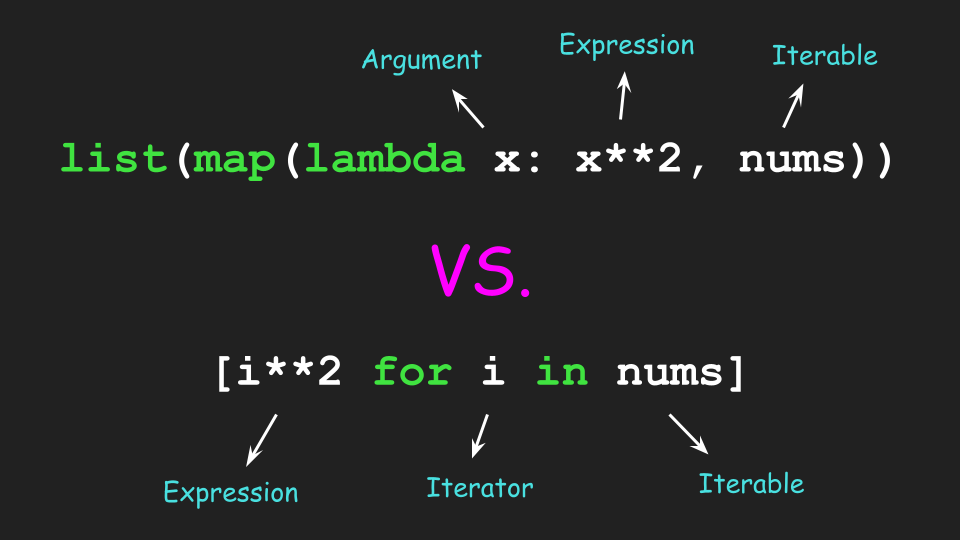
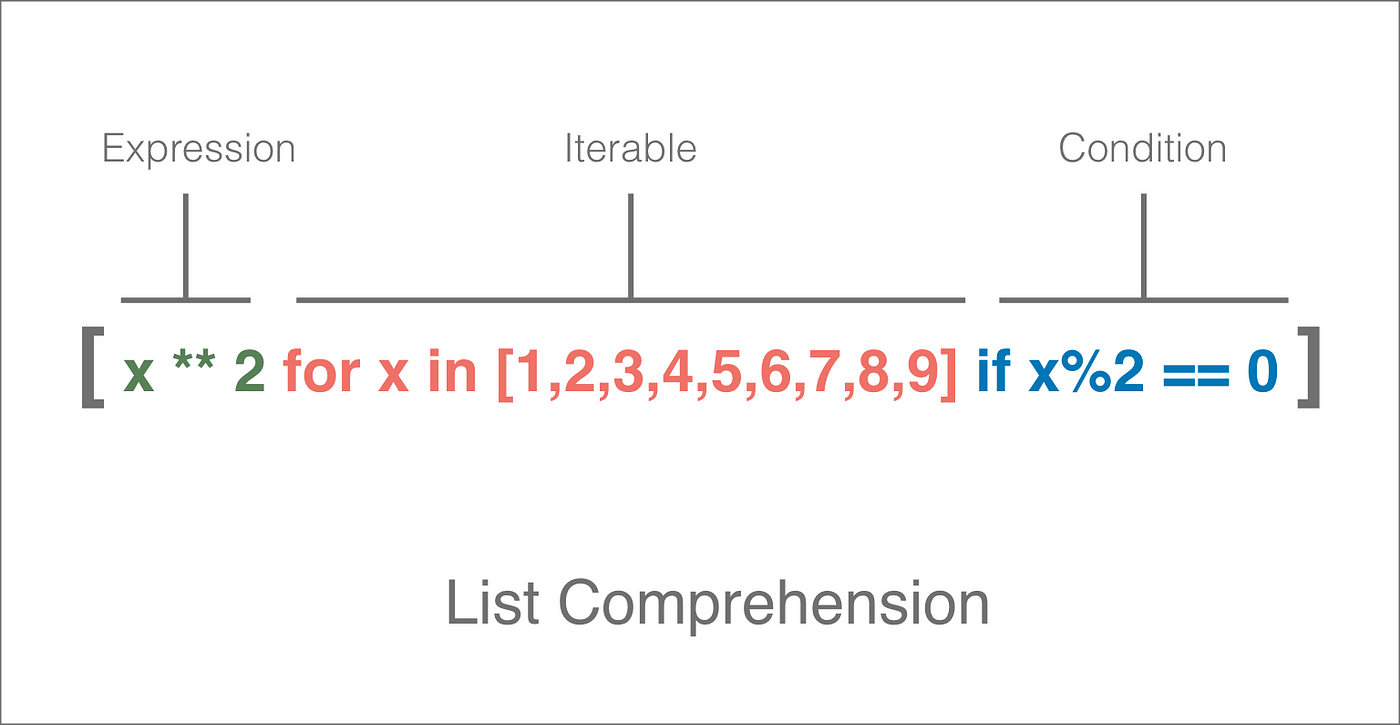
Let's dive into some examples!
Example 1: Squaring Numbers
Suppose we have a list of numbers and want to create a new list with their squares. We can do this using a simple list comprehension:
numbers = [1, 2, 3, 4, 5]
squares = [x ** 2 for x in numbers]
print(squares) # Output: [1, 4, 9, 16, 25]
Example 2: Filtering Even Numbers
Now, let's say we want to create a new list with only the even numbers from our original list. We can use a conditional statement within the list comprehension:
numbers = [1, 2, 3, 4, 5]even_numbers = [x for x in numbers if x % 2 == 0]
print(even_numbers) # Output: [2, 4]
Example 3: Mapping Strings to Upper Case
Suppose we have a list of strings and want to create a new list with all the strings converted to upper case. We can use the upper() method within the list comprehension:
strings = ['hello', 'world', 'python']uppercase_strings = [s.upper() for s in strings]
print(uppercase_strings) # Output: ['HELLO', 'WORLD', 'PYTHON']
Example 4: Combining Multiple Operations
Now, let's put everything together! We can create a new list with the squares of even numbers from our original list:
numbers = [1, 2, 3, 4, 5]squares_of_even_numbers = [x ** 2 for x in numbers if x % 2 == 0]
print(squares_of_even_numbers) # Output: [4, 16]
In this example, we're applying two operations:
Filtering out odd numbers (if x % 2 == 0 ) Squaring the remaining even numbers ( x ** 2 )
Tips and Variations
You can combine multiple operations by nesting conditional statements or using logical operators (e.g.,and, or). List comprehensions are generally faster than equivalent loops, especially for large datasets. If you need to perform more complex operations, consider using generator expressions or the built-in map() function.
List comprehensions are a powerful tool in Python's toolbox. With practice and creativity, you can solve a wide range of problems in a concise and readable way!
